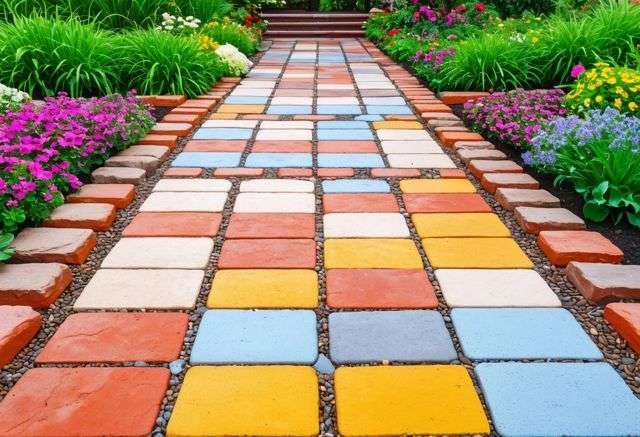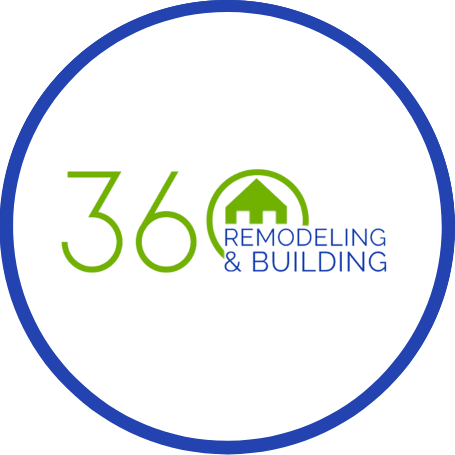
Choosing Pavers: Altadena Homeowner’s Guide

Choosing pavers for your Altadena home involves understanding the types available such as concrete, brick, and natural stone, each offering unique benefits like durability, aesthetic appeal, and minimal maintenance. Following tips on color selection, including considering your home’s exterior and climate, can ensure your pavers enhance your outdoor space effectively.
Introduction to Pavers for Altadena Homes
Pavers are a popular choice for enhancing the outdoor aesthetics and functionality of Altadena homes. They are individual units made of various materials and can be arranged in different patterns to create durable and visually appealing surfaces for driveways, walkways, patios, and pool areas.
Types of Pavers
There are several types of pavers commonly used in Altadena homes, each offering unique benefits:
- Concrete Pavers: These are versatile and come in a variety of shapes, sizes, and colors. They are known for their strength and durability, making them suitable for high-traffic areas. Learn more about concrete pavers in this guide.
- Brick Pavers: Known for their classic look and durability, brick pavers are a preferred choice for those seeking a traditional aesthetic. They are also highly resistant to stains and require minimal maintenance. Discover top brick paving patterns for your driveways.
- Natural Stone Pavers: These include materials like granite, slate, and limestone. Natural stone pavers offer a high-end appearance and can complement various landscaping styles, providing a unique and luxurious look. Check out this article on decoding aesthetics of granite and sandstone pavers.
Benefits of Using Pavers
Pavers offer numerous advantages for homeowners:
- Durability: Pavers are highly resistant to wear and tear, providing a long-lasting solution for outdoor surfaces.
- Aesthetic Appeal: They enhance the visual appeal of your property by adding texture and color.
- Low Maintenance: Pavers require minimal upkeep compared to other materials, making them an economical choice in the long run.
- Versatility: They can be used for various applications, including driveways, patios, walkways, and pool decks.
- Easy Repairs: Individual pavers can be replaced without the need to overhaul an entire section, saving time and costs.
Understanding the types and benefits of pavers can help Altadena homeowners make informed decisions that enhance both the beauty and functionality of their outdoor spaces.

Choosing the Right Color for Your Pavers
Tips and Guidelines on Selecting the Best Color for Your Pavers
Choosing the right color for your pavers can significantly enhance your landscape aesthetics. Consider the overall look and feel you want for your outdoor space. Here are some key guidelines:
- Complement Your Home Exterior: Choose paver colors that match or complement your home’s exterior. If your home has warm tones, opt for pavers in browns, beiges, or terracotta. For cooler-toned homes, consider grays, blues, or a mix of both.
- Balance with Surroundings: Consider the natural elements around your yard. Lush green lawns may pair well with neutral colors, while a more arid landscape can benefit from warmer hues.
Altadena’s climate plays a vital role in paver selection. The area experiences hot summers, so:
- Light Colors for Cooler Surfaces: Light-colored pavers reflect sunlight and stay cooler underfoot, making them ideal for walkways and pool areas.
- Durability: Ensure the chosen color is fade-resistant to maintain its vibrancy despite the intense sun exposure.
Using trends in landscaping can also influence your color choice:
- Natural, Weathered Looks: Embrace the Wabi-Sabi trend with weathered brick or rustic tones that blend seamlessly into natural surroundings. This style is popular for creating a timeless, organic feel.
Lastly, consider the practicality of your paver color concerning maintenance:
- Stain Concealment: Darker pavers can better hide stains from dirt, leaves, and frequent use, whereas lighter pavers may show dirt more but can look cleaner overall with regular maintenance. For further insights, check out innovative ideas for paver pathways.
By following these tips, you’ll ensure that your paver color enhances your home’s aesthetic and fits perfectly within Altadena’s unique climate.
Pet-Friendly Paver Options
Choosing pet-friendly pavers for your home in Altadena ensures your pets are safe and comfortable while playing outside. Opt for non-slip surfaces to prevent accidents. Materials like textured concrete pavers, cobblestone, and certain rubber tiles can provide great traction, helping your pets walk confidently. Learn more about pet turf options that can complement your pavers.
Benefits of Pet-Friendly Pavers:
- Non-Slip Surface: Prevents slips and falls, offering better grip for pets with mobility issues.
- Durability: Withstands wear and tear from pet activities.
- Easy to Clean: Resists stains and can be hosed down for quick cleaning.
Selecting pavers that are resistant to scratching is crucial. Durable options, such as certain rubber and sealed concrete pavers, can withstand your pet’s playful antics without showing much wear.
Maintenance Tips:
- Regular Cleaning: Sweep and wash the pavers to keep them free from debris and stains.
- Sealant Application: Applying a sealant periodically can protect the pavers and make cleaning easier.
By considering these factors, you can create a safe, comfortable, and easy-to-maintain outdoor space for your pets.

Maintenance Tips for Long-Lasting Pavers
Essential maintenance tips to ensure the longevity of your pavers can keep your Altadena outdoor spaces looking new. Follow these steps for optimal results:
- Regular Sweeping: Sweep daily to prevent debris buildup, which can stain and damage your pavers.
- Rinsing: Use a garden hose or power washer in mold-prone areas to keep pavers clean.
- Cleaning Solutions: Use mild solutions like dish soap or diluted white vinegar with a bristle brush for a thorough clean.
- Sealing: Re-seal your pavers every 1-2 years with either a matte or glossy finish to protect them and make cleaning easier.
- Prompt Repairs: Quickly replace any broken or chipped pavers to maintain safety and appearance.
- Polymeric Sand: Apply polymeric sand between pavers to lock them in place, prevent weed growth, deter pests, and keep water out.
- Weed Removal: Pull weeds by hand or use organic herbicides; avoid harmful substances like salt and vinegar.
- Grout Repair: Repair grout damage from extreme temperatures or wear with DIY tools or professional help.
- Scheduled Maintenance: Establish a routine maintenance schedule for sweeping, rinsing, checking for damage, and removing weeds to ensure the longevity of your pavers.
Proper maintenance depends on the type of pavers you have:
- Concrete Pavers: Sweep regularly, use pressure washing for deep cleaning, and apply a quality sealer every 2-3 years.
- Brick Pavers: Sweep consistently, use targeted cleaners for specific stains, pressure wash on low settings, and re-seal every 2-5 years.
- Natural Stone Pavers: Use a leaf blower instead of sweeping, wash with a garden hose and gentle spray nozzle, and seal every 1-3 years.
- Porcelain Pavers: Sweep and wash with a garden hose, mild detergent, or low-pressure washer. No sealing required due to their natural impervious quality.
Interlocking pavers are particularly durable and aesthetically versatile, ideal for various outdoor projects. They require careful planning, material selection, precise installation, and ongoing maintenance:
- Routine Cleaning: Sweep and pressure wash regularly, and address stains promptly.
- Joint Sand: Use joint sand to fill gaps, preventing weed and ant intrusion.
- Sealing: Seal to protect from stains and wear. Manage freeze-thaw cycles to avoid damage in colder climates.
- Winter Maintenance: Avoid de-icing salts and prevent tool-related damage during hardscaping.
For more information on paver maintenance and to explore our services, visit 360 Remodeling and Building. If you need professional help, get your free estimate today.

FAQ
What are pavers and why are they popular in Altadena homes?
Pavers are individual units made of various materials that can be arranged in different patterns to create durable and visually appealing surfaces for driveways, walkways, patios, and pool areas. They are popular in Altadena homes for enhancing both the outdoor aesthetics and functionality.
What types of pavers are commonly used in Altadena homes?
There are several common types of pavers used in Altadena homes:
- Concrete Pavers: Versatile with various shapes, sizes, and colors. Known for their strength and durability.
- Brick Pavers: Classic look and very durable, resistant to stains, require minimal maintenance.
- Natural Stone Pavers: Includes granite, slate, and limestone. Offer a high-end, luxurious appearance.
What are the benefits of using pavers?
Key benefits of using pavers include:
- Durability: Highly resistant to wear and tear.
- Aesthetic Appeal: Enhances property visual appeal with texture and color.
- Low Maintenance: Minimal upkeep is required.
- Versatility: Suitable for driveways, patios, walkways, and pool decks.
- Easy Repairs: Individual pavers can be replaced easily.
How do I choose the right color for my pavers?
When selecting paver colors:
- Complement Your Home Exterior: Match or complement your home’s color.
- Balance with Surroundings: Consider the natural elements around your yard.
- Light Colors for Cooler Surfaces: Ideal for walkways and pool areas as they stay cooler underfoot.
- Stain Concealment: Darker pavers hide stains better, while lighter ones may require more maintenance.
What are the benefits of pet-friendly pavers?
Pet-friendly pavers offer:
- Non-Slip Surface: Prevents slips and falls, offering better grip for pets.
- Durability: Can withstand wear and tear from pet activities.
- Easy to Clean: Resistant to stains and can be quickly hosed down.
What are some maintenance tips for long-lasting pavers?
To ensure the longevity of your pavers:
- Regular Sweeping: Prevent debris buildup.
- Rinsing: Use a garden hose or power washer.
- Cleaning Solutions: Use mild solutions like dish soap or diluted white vinegar.
- Sealing: Re-seal every 1-2 years.
- Prompt Repairs: Replace broken or chipped pavers quickly.
- Polymeric Sand: Apply between pavers to prevent weed growth.
- Weed Removal: Use organic herbicides and remove weeds by hand.
- Grout Repair: Repair grout as needed.
- Scheduled Maintenance: Establish a routine for upkeep.
How can I maintain different types of pavers?
Maintenance tips for specific paver types include:
- Concrete Pavers: Sweep regularly, pressure wash for deep cleaning, seal every 2-3 years.
- Brick Pavers: Sweep consistently, use targeted cleaners, pressure wash on low settings, re-seal every 2-5 years.
- Natural Stone Pavers: Use a leaf blower, wash with a gentle spray nozzle, seal every 1-3 years.
- Porcelain Pavers: Sweep, wash with mild detergent or low-pressure washer, no sealing required.
What are interlocking pavers and how should they be maintained?
Interlocking pavers are durable and versatile, ideal for various outdoor projects. Maintenance tips include:
- Routine Cleaning: Sweep and pressure wash regularly.
- Joint Sand: Use to fill gaps and prevent weed growth.
- Sealing: Protect from stains and wear.
- Winter Maintenance: Avoid de-icing salts and prevent tool-related damage.
Sources Used in the Article
- AlphaPaw: Best Flooring for Dogs
- Washington Post: Advice on Repairing Vintage Tile Floor
- NewsBreak: Transforming Outdoor Spaces
- Forbes: The Year of the Backyard
- LivingEtc: Lavender Companion Plants
- Floors for Paws: Best Non-Slip Flooring for Dogs
- Lowe’s: Pet-Friendly Flooring
- Business Insider: Best and Worst Backyard Trends
